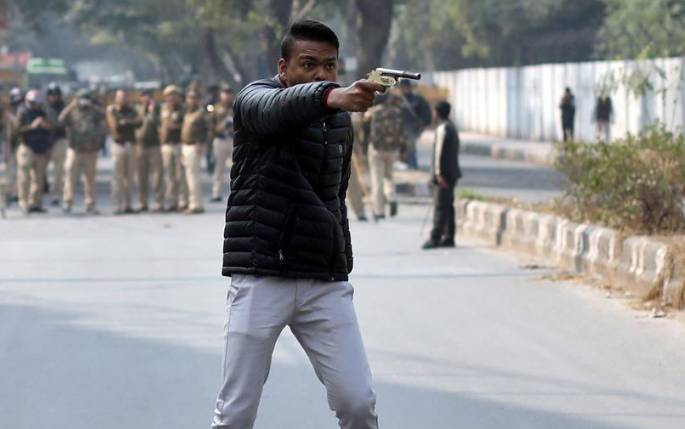×
The Standard e-Paper
Fearless, Trusted News

An unidentified man brandishes a gun during a protest against a new citizenship law outside the Jamia Millia Islamia university in New Delhi, India, January 30, 2020. REUTERS/Danish Siddiqui
A gunman went live on Facebook to warn he was taking his “final journey” before firing at a protest against India’s new citizenship law in Delhi on Thursday, wounding a student.